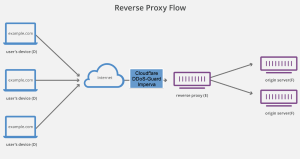How to hide hosting information for a website?
How to hide hosting information for websites important?
Is not only privacy that you will gain, but you will make it more secure and harder for people who want to track your steps online, however it is still possible to track you. Using other methods, nothing can make you fully anonymous, but you can make it harder to find your hosting by hiding hosting information for a website that will help you and will prevent you from being easily tracked.
How to host anonymous website on the Internet?
First you need to use Offshore Hosting that takes care of your information and secure your information without providing it easily. Offshore Hosting is not illegal, people usually associate offshore hosting with illegal activity, that is not true. Offshore Hosting is a country that allows you to have freedom of speech or a certain level of privacy, for example Governments that track you online, what you do and all your internet activity and don’t allow you to post or talk about them is not allowed at all. That is Offshore Hosting, they probably (most) of them allow you to do freedom of speech and protect your privacy and your website stays up.
How to hide your hosting information of your website?
There are many ways to hide hosting information for a website online, you need to use the right tools and to avoid the maximum exposure. That means that you should use anonymous services, offshore hosting. You can use Alexhost Hosting. We protect customers’ information in our services like Alexhost VPS, Web Hosting, Dedicated Servers for freedom of speech and privacy. But that is not the question, what to do to hide your hosting information? To do it, you need to do this few steps:
1. Use a CDN
Using a CDN (Content Delivery Network) like Cloudflare will allow you to hide your backend IP of your Hosting Provider, of course it won’t protect you fully, but will allow you to protect your website from someone to know the real location of your hosting. But of course, it is possible by contacting them. In such cases you should use reliable alternatives like DDoS-Guard the alternative for the cloudflare.
2. Reverse Proxy
This is one best way to hide hosting information for a website, your traffic will go to reverse proxy which will send the traffic to your backend IP, your hosting information is hidden by the reverse proxy, people will think that you are hosting in X or Y hosting, but in fact that is just a reverse proxy, by default the hosting providers can’t access or shouldn’t access your server without permission. This is a slightly harder method. You can use Alexhost VPS or Alexhost Dedicated Servers to make your own reverse proxy. However, some people know techniques to track your backend server IP.
2.1 How you can create reverse proxy
You can create reverse proxy using a VPS or Dedicated server, take a look in our VPS Hosting. You can create reverse proxy through this:
- Nginx
- HAProxy
- Apache / Tomcat
3. Cloudflare & Reverse proxy
This method is one of best, since it will make it more harder to find your backend IP, you can use DDoS-Guard (instead of Cloudflare for example, doesn’t need to be cloudflare), but since Cloudflare have free plan, that is more suitable for you. How this works? Well

As you can see in the graph above, this works in this way. You use your Internet (obviously) when you go to your website it will be doing this Cloudflare -> Reverse Proxy (hides your backend IP) -> Backend IP (origin server). You can do many reverse proxies but remember that your loading can be longer than expected. But that is possible to reverse if you do load balancing.
4. Use other DNS
Don’t use DNS from your domain provider, well you can do it. But if you want to make it a little more harder (not so hard for those who have know-how), using a Private DNS will make it more suitable for you, with more features and probably DDoS Protection, fast loading and improvement of your performance worldwide.
Few DNS Solutions to check:
- Cloudflare – Also allows that and Cloudflare is not only a CDN but also has free WAF (Web Application Firewall) but of course it is limited.
- DDoS-Guard – Is another solution but is paid. They have WAF Protection and they also have CDN, this is a good solution and good alternative to Cloudflare services, DDoS-Guard also hides your backend IP, that is possible also.
- CloudDNS – They have been in the market many years, they provide many features and ddos protected DNS servers for those who are constantly attacked.
- Imperva – This is a paid solution, is more used for business and big companies in the world, since the pricing isn’t visible. But also hides your backend IP. Imperva also provides DDoS Protection
5. Don’t expose your mail servers.
Usually users don’t know that and some of them are aware of this dangerous leak. Don’t let your backend IP exposed through mail servers, because they will know that by checking your DNS records and they will find your mail servers.
How to avoid exposing your mail servers.
Don’t use your own VPS where the website is hosted in. Instead of that you can use Gmail servers, Protonmail servers and other servers to do it and yes you can use other VPS to host your own mail servers and prevent people to know it. Or you can’t not use any mail servers! That is your choice. You can just add your mail information in the website and that’s!
Check your DNS records for IP Leak:
- DNSDumpster – You can check your domain DNS records using this tools, please you don’t need to use https or www, just use example.com domain and you will track all dns records available, if your IP is there even if you use cloudflare that means that your backend IP is exposed.
- Robtex – Is a smart tool to track online users, robtex is more used for investigations and for people who want to know more about you, since they have several tools for free. Note that your “old records” can be tracked and saved in their database, notice that before doing it.
- dnschecker – DNSChecker will do that for you, this tool allows you to select which records you can search by “all” or just by one that you should be interested in.
- Manually – You can check your DNS records through Windows Commands, Linux Terminal they are limited in some cases, but it is possible to have other tools integrated and make it more powerful. But for basic search is easy take a look by using a command line (CMD) or Terminal in both OS:
- Windows use: nslookup thewebsiteyouwant(.)com
- Linux use: host -a thewebsiteyouwant(.)com
Conclusion:
There are several tools to do that, some of them we didn’t publish but since there are many solutions over the corner, now you know how to hide hosting information for a website online and which tools allow you that.


